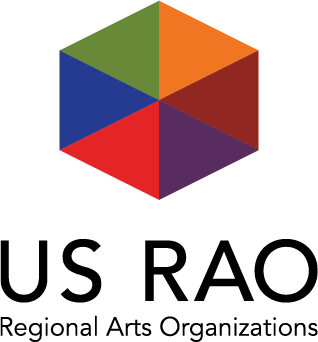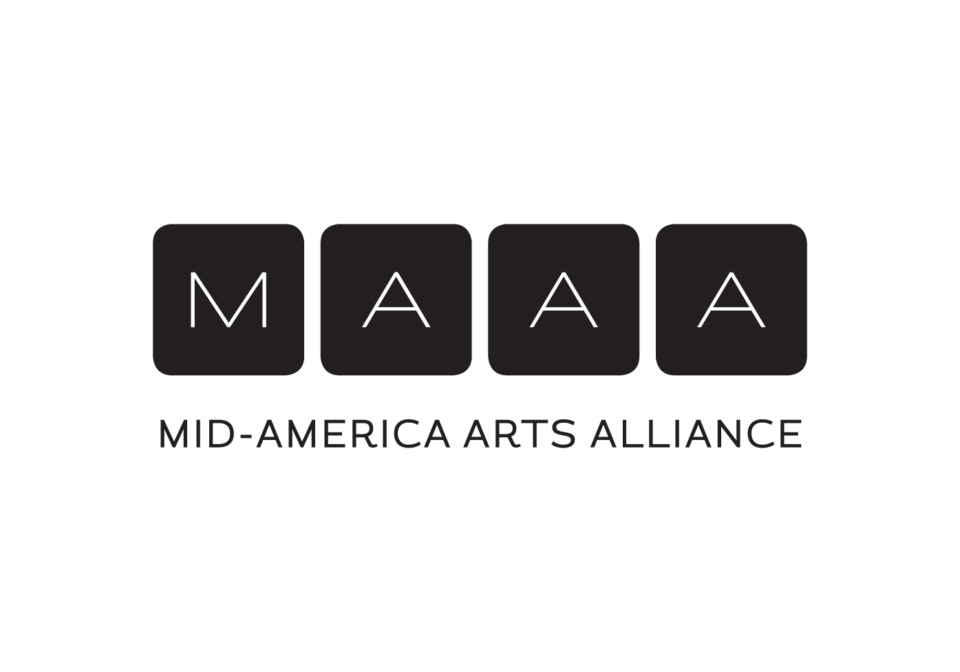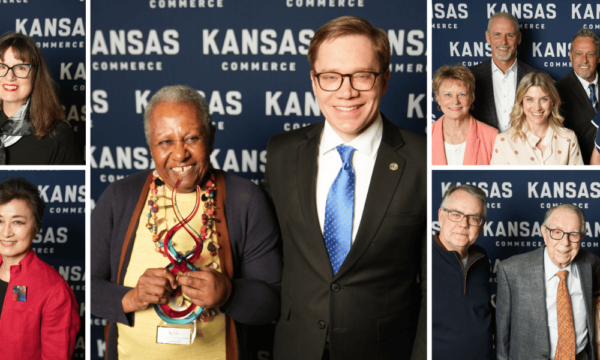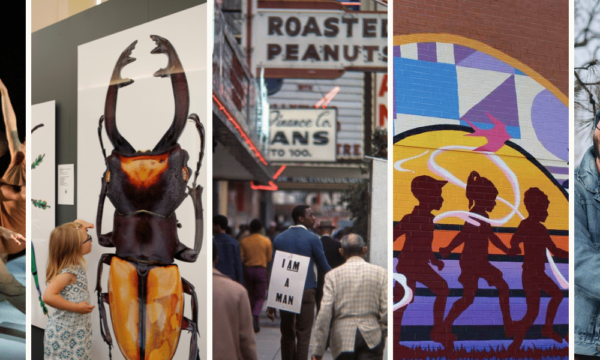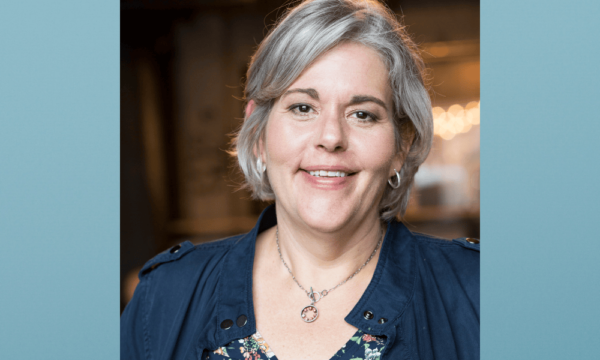Cultural Sustainability
Operational Impact Grants for Small Arts Organizations
Applications are now closed.Cultural Sustainability: Operational Impact Grants for Small Arts Organizations is a pilot program, in partnership with The Wallace Foundation, offering operational grants, capacity building, and cohort learning to small, culturally driven arts organizations with operating expenses under $500,000. M-AAA’s grant program is open to nonprofits AND arts-centric businesses in Arkansas, Kansas, Missouri, Nebraska, Oklahoma, Texas, and the Native Nations that share this geography.*
M-AAA expects to grant a total of $1,100,000 in the region, through 22 unrestricted, non-matching organizational grants of $50,000 each.
Spanish translation: Para ver las pautas y las preguntas frecuentes en español, haga clic aquí.
* If your organization is located outside of M-AAA’s six-state region, you still may qualify for a Cultural Sustainability grant through another USRAO. Learn more here.
Applications for Cultural Sustainability closed on January 10, 2025, at 5:00 p.m. Central Time. The guidelines below are for reference only. For future opportunities, please subscribe to our newsletter.
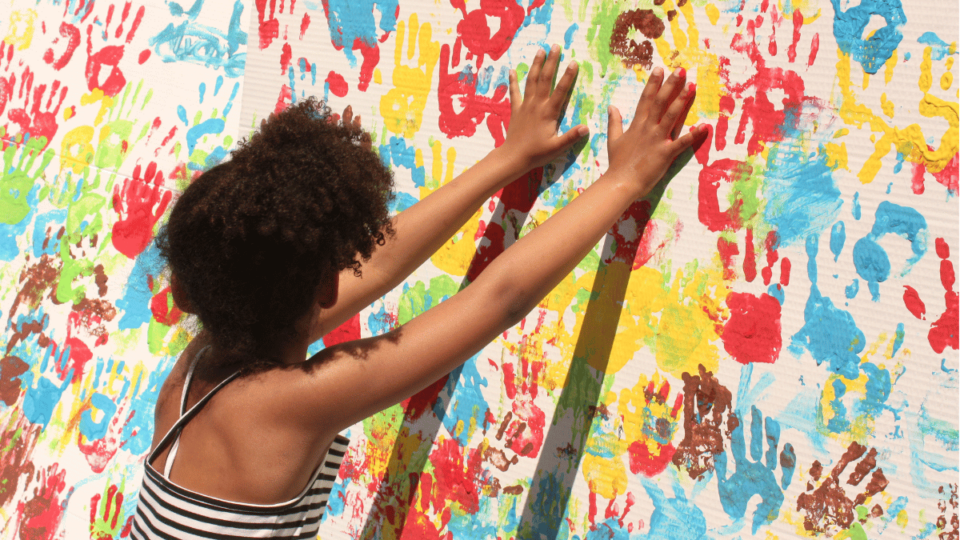
Who Cultural Sustainability is for
Cultural Sustainability invests in culturally driven organizations and businesses with annual operating expenses under $500,000: 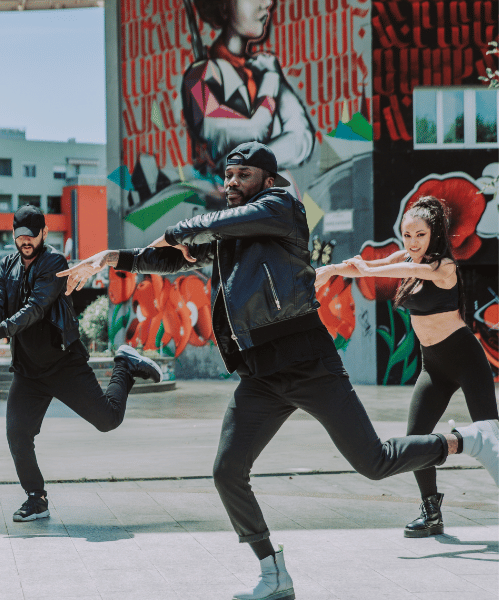
- Located within the M-AAA Mid-America six-state region of Arkansas, Kansas, Missouri, Nebraska, Oklahoma, and Texas
- Nonprofit 501(c)(3) organizations; fiscally sponsored artist or ensemble organizations; art-centered business entities (LLC, Partnership, Benefit Corporation, etc.); state or federally recognized tribal governments
- Have at least three years of arts programming. The years of activity do not need to be consecutive or connected to the date of formation/incorporation.
- Organizations that predominantly serve Black, Latine, Asian, Arab, Indigenous, Pacific Islander, and/or Caribbean communities, or another underserved community
- Founded by and/or for a community of color or another underserved community
Successful applicants will help diversify M-AAA’s historical grantmaking including:
- Organizations led by people of color or members of other underrepresented communities, either artistically or administratively
- First-time applicants or those who have received few or no grants from M-AAA
- Organizations with new leadership in key roles
Single artist sole proprietorships are not eligible for this initiative.
What Cultural Sustainability Provides
- $50,000 nonmatching operational grants
- Unrestricted funding meaning funds may be used for overhead and operational expenses including salaries
- Opportunity to regularly connect and learn with fellow culturally driven organizations and businesses
- Opportunity to develop innovative strategies to catalyze broad impact
- Opportunity to inform equitable grantmaking practices and processes
- One-on-one consultations and cohort workshops with experts in evaluation and data collection
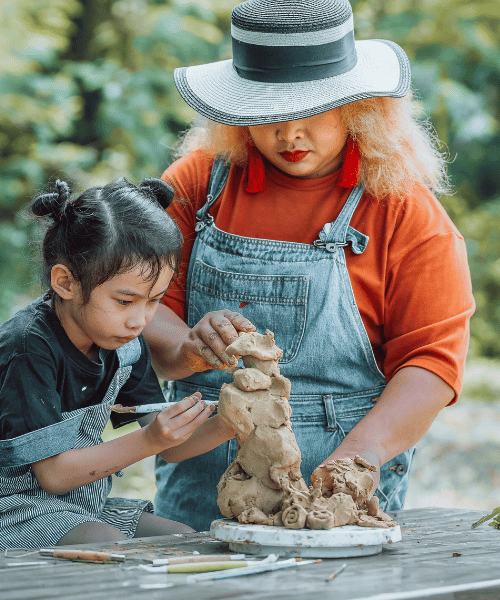
Timeline
- Applications open October 30, 2024, at 11:00 a.m. CT
- Applications close January 10, 2025 at 5:00 p.m. CT
- Awards for Cultural Sustainability: Operational Impact Grants for Small Arts Organizations made April 2025
- Public announcement April 2025
The Technical Assistance Learning Cycles will occur in 3-month cycles with a 1-month break at the end of each cycle.
- Cycle 1: May 2025–July 2025
- Cycle 2: September–November 2025
- Cycle 3: January 2026–April 2026
About Cultural Sustainability
Cultural Sustainability is a new pilot grant program offered by the six U.S. Regional Arts Organizations (USRAOs) in partnership with The Wallace Foundation. Each USRAO has developed a granting program and guidelines for its region. In total and nationwide, 100+ Cultural Sustainability grants will be given out nationwide, with 22 grants awarded in M-AAA’s six-state region of Arkansas, Kansas, Missouri, Nebraska, Oklahoma, and Texas.
Cultural Sustainability acknowledges the invaluable contributions arts and cultural organizations make in our communities and the broader cultural landscape. This program endeavors to support and understand how small, community-based arts organizations can advance their sustainability and well-being with resources to expand their practices and increase arts engagement in their communities.
Cultural Sustainability is part of The Wallace Foundation’s Advancing Well-Being in the Arts initiative, which funds arts organizations rooted in communities of color to advance their well-being, enhance understanding of their contributions to community, and ultimately help to build a more equitable and sustainable arts ecosystem.
The guidelines below are specific to M-AAA’s Cultural Sustainability: Operational Impact Grants for Small Arts Organizations. M-AAA’s opportunity expands the types of operational structures eligible for support to include nonprofits as well as art-centric businesses to better serve groups that may face barriers with other grant programs.
If your organization is located outside of M-AAA’s six-state region, you still may qualify for a Cultural Sustainability grant through another USRAO. Learn more here.
2024 Cultural Sustainability: Operational Impact Grants for Small Arts Organizations Roundtable
Slide Deck
M-AAA hosted roundtable sessions to gather feedback and answer questions about the guidelines for the new pilot program, Cultural Sustainability.
View the full roundtable slide deck here.
Full Guidelines
En Español
Para ver las pautas y las preguntas frecuentes en español, consulte los enlaces a continuación.
Program Description
Cultural Sustainability: Operational Impact Grants for Small Arts Organizations endeavors to support arts and cultural nonprofits as well as art-centric businesses in M-AAA’s six-state region (Arkansas, Kansas, Missouri, Nebraska, Oklahoma, Texas, and the Native Nations that share this geography).
Spanish translation: Para ver las pautas y las preguntas frecuentes en español, haga clic aquí.
- Through financial support of $50,000 nonmatching, operational support grants, grantees will work toward expanding their impact and improving the well-being and health of their organizations for the communities they serve, and
- Through collaborative learning, grantees will regularly connect with fellow culturally driven organizations and businesses and learn from workshops with experts in evaluation and data collection to develop strategies to catalyze broad impact across the sector.
Through this program, M-AAA is exploring equitable grantmaking practices and how to implement them in the region.
Successful applicants will help diversify M-AAA’s historical grantmaking by including:
- Organizations led by people of color or members of other underrepresented communities, either artistically or administratively
- First-time applicants or those who have received few or no grants from M-AAA
- Organizations with new leadership in key roles
Eligibility
Cultural Sustainability: Operational Impact Grants for Small Arts Organizations applicants must:
- Be a culturally driven organization or business
- Located and have an arts and culture presence in Mid-America Arts Alliance’s six-state region of Arkansas, Kansas, Missouri, Nebraska, Oklahoma, Texas, or the Native Nations that share this geography
- Be a nonprofit 501(c)(3) organization; fiscally sponsored group; artist-centered or artist-led collective business (LLC, S Corps, Limited or General Partnerships); state or federally recognized tribal government
- Have at least three years of arts programming in any artistic discipline and genre. The years of activity do not need to be consecutive or connected to the date of formation/incorporation but do need to reflect the work of the entity that will receive the funding and participate in the cohort learning
- Have a current operating budget under $500,000
- Provide the three most recently completed fiscal years’ tax filings or profit/loss statements
- Have a Unique Entity Identifier (UEI)
- Have an Employer Identification Number (EIN)
- Predominantly serve Black, Latine, Asian, Arab, Indigenous, Pacific Islander, and/or Caribbean communities, or another underrepresented community*
- Self-identify as being founded by and/or for a community of color or another underrepresented community*
- Be willing to have at least one staff person participate in monthly cohort meetings throughout the 15-month pilot program
*For the purpose of these guidelines, “underrepresented communities” refers to those whose opportunities to experience the arts and/or receive arts funding have been limited by geography, race/ethnicity, economics, and/or disability. Age (e.g., youth, seniors), gender, or sexuality alone do not qualify a group as underrepresented.
Those not eligible to apply include:
- Single-artist sole proprietorships
- Individuals
- Units of local, state, or federal government
- Schools, including public or private preschools, K–12, colleges, and universities
- ArtsHERE grant recipients
How to Apply
Applications open on October 30, 2024. Applications are due on January 10, 2025, at 5:00 p.m. CT.
Spanish translation: Para ver las pautas en español, haga clic aquí.
M-AAA accepts applications via an online platform. The latest version of Google Chrome is the recommended web browser to use when working in the online application form. To maximize the functionality of the online platform, try clearing your browsing data, cookies, and search history before you begin.
The Application Guidelines document, Application At-A-Glance document and the FAQs document are to be used by applicants to support them in preparing their answers. While draft application forms can be saved online, technology is unreliable. We strongly recommend applicants prepare their narrative responses in Microsoft Word, Google Docs, or similar note-taking applications to ensure they have a backup for reference.
All documents uploaded into the application must be in Microsoft Word, Excel, or PDF format. The application does not support file types saved as Mac Pages or Numbers.
Refer to the Documents Checklist in the Application At-A-Glance document to ensure you have all required documents and any optional materials ready for upload to your application form.
Draft application forms can be saved for editing later by clicking “Save my progress and resume later” at the top or bottom of the application form webpage. Each time you save your application you will be asked for an email address and a password. An email with new instructions on how to resume the most recent draft of your application will be sent to that email address each time it is saved. To resume a saved draft of your application, refer to the most recent email in your inbox or bookmark and return to the “Thank you for saving/resume your application” webpage.
Applicants experiencing trouble logging into their application form or unable to save and upload files should email program staff at: culturalsustainability@maaa.org.
If your application is received after 5:00 p.m. CT, it is considered late and not guaranteed for review.
Applicants who experience technical difficulties at the time of application must immediately email staff at culturalsustainability@maaa.org. Staff will evaluate if your application can be processed after the deadline.
ACCESSIBILITY
M-AAA works to ensure that grant guidelines, presentations, and other written materials are created with accessibility and disability experiences in mind. For all grant programs, M-AAA uses an online platform called Form Assembly, unless applicants request another route. We want this opportunity to be accessible to all and will work with applicants who need to use other means to apply. Alternative application options may include:
- Using an adapted form in Microsoft Word (available upon request)
- Sharing a video application responding to the application questions (available upon request)
Applications are due on January 10, 2025, at 5:00 p.m. CT
You may also cut and paste the following link into your browser to begin the application: https://maaa.tfaforms.net/5112332
Unrestricted Funding
Cultural Sustainability: Operational Impact Grants for Small Arts Organizations provides unrestricted funding with no cost-share or match requirement to support the organization’s mission and advance organizational/business goals, including current and new programs and initiatives. Funding can be used to pay for overhead expenses such as rent, utilities, salaries, infrastructure, supplies, and day-to-day business expenses.
Funding cannot be used for:
- the sole benefit of any private shareholder or individual
- capital projects such as new construction
- the purchase of land or buildings
- the compensation of foreign nationals currently embargoed by the federal government (e.g., North Korea)
- International travel
- lobbying
- membership in airline travel clubs
- membership in civic, social, community organizations, or country clubs
Application Review
Cultural Sustainability: Operational Impact Grants for Small Arts Organizations applications will be accepted through M-AAA’s online grant portal and reviewed by M-AAA staff to determine completeness and eligibility. Ineligible applicants will be notified by email.
Eligible applications will be reviewed by a demographically diverse group of arts leaders, professionals, and practitioners who reside in the M-AAA region with experience and knowledge in one or more art forms.
REVIEW CRITERIA AND RUBRIC
Eligible applications will be reviewed based on the following criteria:
- Overall Mission Alignment with the Grant Program
The application illustrates that the organization’s mission aligns with the intentions of the Cultural Sustainability: Operational Impact Grants for Small Arts Organizations program.
- Organizational Impact in its Community
The application demonstrates an arts and culture presence and impact in the M-AAA region that aligns with and is accountable to the community it serves.
- Organization Sustainability
The application displays planning for the sustainability of services and impactful programming.
- Cohort Participation
The applicant understands the expectations of and shows an enthusiasm for participation in cohort meetings.
Reviewers will evaluate each eligible application using the following 6-point ranking scale for each criterion listed above.
6 – Exemplary: Fully achieves the stated criteria. Meets all of the review criteria requirements to the HIGHEST degree.
5 – Strong: Strongly achieves the stated criteria. Meets all of the review criteria requirements to a SIGNIFICANT degree.
4 – Good: Sufficiently achieves the stated criteria. Meets all of the review criteria requirements to SOME degree.
3 – Fair: Moderately achieves the stated criteria. Meets MOST of the review requirements.
2 – Marginal: Minimally achieves the stated criteria. Meets SOME of the review requirements.
1 – Weak: Does not achieve the stated criteria. Inadequately meets the review requirements.
FUNDING PRIORITIES
In addition to panel review, funding priority will be given to applications that meet one or more of the following:
- Organizations led by people of color or members of other underrepresented communities, either artistically or administratively
- Organizations with a demonstrated commitment to underrepresented communities
- Organizations located in rural or isolated areas of the region
- First-time applicants or those who have received few or no grants from M-AAA
- Organizations with new leadership in key roles
Applicants not selected for the grant may request panel feedback at the time of grant status notification. Since this is a one-time opportunity and we expect a large volume of applications, we ask that you be patient with us while we respond to each request.
Grant Awards and Requirements
Cultural Sustainability is made possible through the generous support of The Wallace Foundation. M-AAA will disburse grants of $50,000 to 22 organizations for operational support.
If selected, the applicant will enter into a grant agreement with M-AAA. The agreement will outline the terms and conditions to ensure compliance with our grant requirements.
Funding will be distributed through two partial payments:
- 80% upon execution of the grant agreement, W-9 Form, and completion of the cohort learning baseline assessment form.
- 20% upon successful review of the Final Report due by June 15, 2026.
To assist grantees in managing their grants, M-AAA can provide flexible and unique disbursement plans upon request. Additional information and resources for grantees can be found at: www.maaa.org/resources/for-grantees.
GRANTEE REQUIREMENTS
- Grant Agreement: Required
Grantees must comply with all requirements as stipulated in the grant agreement, including, but not limited to the following:
- Grantees are required to carry out activities consistent with the application as approved for funding.
- Changes to funded activities must be proposed in advance by the grantee and require written approval from M-AAA staff before implementing project changes. Requests for changes are considered on a case-by-case basis; approval is not guaranteed.
- Grantees commit to M-AAA’s Grantee Assurance of Compliance and Federal Suspension and Disbarment Policy at www.maaa.org/resources/assurance-of-compliance;
- Grantees must complete an online final report form provided by M-AAA. The online final report form summarizes grant-funded activities and accomplishments at the end of the 15-month pilot program.
- Grantees must agree to credit acknowledgment of M-AAA’s support in all promotional materials. To learn more visit, www.maaa.org/resources/grantee-crediting-requirements;
- Grantees are responsible for and must retain all records, receipts, and proof of expenses for a minimum of three (3) years following the 15-month pilot program and provide those documents to M-AAA upon request; and
- Grantees must expend all funds on or before June 15, 2026.
- Technical Assistance Participation: Required
Throughout the 15-month pilot program, grantees are expected to participate in monthly cohort workshops and one-on-one meetings with professional development consultants. Additionally, organizations will be asked to complete quarterly surveys and evaluations to help inform the services and offerings of the program.
- Final Report: Required
M-AAA will provide an online Final Report form. Grantees must complete and submit one on or before June 15, 2026. The Final Report form requires attendance information for funded public-facing activities, photos or screenshots of those activities, documentation of award acknowledgments, and, when available, press reviews and/or evaluations of activities including anecdotal feedback. Pictures and documentation must be uploaded into the online Final Report form.
- Grant Record Retention: Required
Grantee’s financial records, supporting documents, and all records related to this pilot program must be retained for three (3) years from the date of the Final Report. Grantee shall provide Mid-America Arts Alliance access to any records kept by Grantee to make audits or examinations as necessary.
Program Timeline
- Application opens on October 30, 2024, at 11:00 a.m. CT
- Application closes on January 10, 2025, at 5:00 p.m. CT
- Awards for Cultural Sustainability: Operational Impact Grants for Small Arts Organizations made April 2025
- Public announcement April 2025
- The Technical Assistance Learning Cycles will occur in three-month cycles with a one-month break at the end of each cycle. These dates are tentative and subject to change.
- Cycle 1: May 2025–July 2025
- May 15, June 19, and July 17
- Cycle 2: September–November 2025
- September 18, October 16, and November 20
- Cycle 3: January 2026–March 2026
- January 15, February 19, and March 19
- Final Report due June 15, 2026
Informed Consent Notification
Mid-America Arts Alliance is participating in a research study that is part of the Wallace Foundation’s Advancing Well-Being Through the Arts initiative, which aims to illuminate how arts organizations founded by, for, and with communities of color represent, support, and advance the well-being of their communities. The goal of the study is to understand what inclusive and equitable grantmaking practices look like across communities and as they are applied to more specific, regional contexts, and to expand our knowledge of grassroots, BIPOC arts organizations that often function under the radar of funders. As part of the study, there might be staff from the research team at Creative Equity Research Partners observing some activities related to the Cultural Sustainability grant program including outreach activities, grants panel, etc. The research team will also look at application and reporting data to understand who the RAOs reach and fund. All quantitative and qualitative data will only be reported out in aggregate and no information will be attributed to an individual or organization. If you have questions about the study, please contact creativeequityresearch@gmail.com.
M-AAA Policies and Procedures
Grantees must comply with the federal policies and legal requirements, statutes, and regulations as stated in M-AAA’s Assurance of Compliance.
Grantees are required to make access accommodations upon request for constituents with disabilities at M-AAA-funded activities. The NEA has resources to assist arts organizations in making accommodations for Accessibility.
Grantees must compensate all professional performers and related or supporting professional personnel at no less than the prevailing minimum rate of compensation. This requirement is in accordance with the regulations issued by the Secretary of Labor in part 505 of Title 29 of the Code of Federal Regulations. Part 505 does not provide information on specific compensation levels.
Grant awards are considered income. Grantees are responsible for all tax obligations under federal, state, and local laws. M-AAA recommends that grantees consult a tax accountant or local Internal Revenue Service office with questions or concerns regarding deductions and reporting.
Grantees who fail to acknowledge M-AAA support online or in print materials for the project may not be considered for future funding opportunities. Visit and use the toolkit to help you manage and announce your grant from M-AAA at www.maaa.org/resources/for-grantees.
All changes to a project must be submitted in writing to M-AAA before the public-facing activity takes place. M-AAA will work with organizations on project changes and/or cancellations such as identifying alternative artists on a case-by-case basis. Awards may be revised or revoked in light of such changes.
Failure to comply with these requirements may result in suspension or termination of the grant award.
Have Questions?
If you have any questions about the Cultural Sustainability: Operational Impact Grants for Small Arts Organizations, please visit the FAQs section or download the FAQs as a pdf to see if your questions are addressed. Applicants should read through all questions and answers before emailing any inquiries to M-AAA. If you did not see your question addressed in the FAQs, please email us at CulturalSustainability@maaa.org.
Applicants can consult with staff before applying during drop-in office hours on Wednesdays from 2:00–4:00 p.m. Sign up for the Zoom link here.
M-AAA staff will not review or provide comments on draft materials.
For programmatic questions and/or technical issues, email program staff at CulturalSustainability@maaa.org.
Office Hours
Attend online drop-in office hours from 2:00 to 4:00 p.m. on Wednesdays from November 6 to January 8 to get help with your application.
Note that drop-in office hours will not occur November 27, December 25, and January 1.
FAQs
Cultural Sustainability is a new pilot grant program offered by the six U.S. Regional Arts Organizations (USRAOs) in partnership with The Wallace Foundation.
Para ver las pautas y las preguntas frecuentes en español, haga clic aquí.
Cultural Sustainability grants will be administered by each of the USRAOs within their individual, multistate regions. Grant guidelines and technical assistance programming will reflect the needs of each USRAO’s respective region.
The opportunity through Mid-America Arts Alliance will give general operating support grants to culturally driven arts and cultural organizations and arts-centric businesses with annual operating expenses up to $500,000.
In total, M-AAA will award 22 general operating grants of $50,000 across our six-state region of Arkansas, Kansas, Missouri, Nebraska, Oklahoma, Texas, and the Native Nations that share this geography.
The FAQs below address the grant guidelines developed by M-AAA for our region, with feedback from two roundtable sessions held in October.
General Information about the US Regional Arts Organizations and the Cultural Sustainability Grant Program
What is a Regional Arts Organization?
The US Regional Arts Organizations (USRAO) are a national collective of six place-based, nonprofit arts service organizations that strengthen America’s infrastructure by increasing access to creativity for all. They comprise Arts Midwest, Mid-America Arts Alliance (M-AAA), Mid Atlantic Arts, New England Foundation for the Arts (NEFA), South Arts, and Creative West.
Mid-America Arts Alliance represents the heartland states of Arkansas, Kansas, Missouri, Nebraska, Oklahoma, Texas, and the Native Nations that share this geography.
As a collective, the USRAOs serve artists, arts organizations, and creative communities through programs that reflect and celebrate the diversity of the field. We partner with the National Endowment for the Arts and others to develop programs that advance arts and creativity.
More information about the USRAOs can be found at usregionalarts.org.
What does M-AAA mean by “culturally driven” organizations or businesses?
Culturally driven organizations focus on promoting, preserving, and developing cultural practices and values, often related to specific communities or ethnic groups. They work in areas like cultural preservation, education, artistic expression, social justice, and community empowerment. Examples include Indigenous cultural centers, minority museums, and organizations promoting endangered languages.
What does M-AAA mean by “underrepresented communities”?
Underrepresented communities refer to groups whose opportunities to experience the arts or receive arts funding have been limited by factors such as geography, race/ethnicity, economics, or disability.
Age (e.g., youth, seniors), gender, or sexuality alone do not qualify a group as underrepresented.
What is the timeline for applying for the Cultural Sustainability Grant?
Applications will open on October 30, 2024, and close on January 10, 2025.
How much funding is available through the Cultural Sustainability Grant?
M-AAA will award 22 grants of $50,000 each across our six-state region of Arkansas, Kansas, Missouri, Nebraska, Oklahoma, and Texas.
What can the funding be used for? What can’t the funding be used for?
Funding can be used for general operational expenses such as rent, utilities, salaries, infrastructure, and day-to-day business expenses. It cannot be used for capital projects (e.g., new construction, land purchases), compensation of foreign nationals in embargoed countries, international travel, lobbying, or membership in social/civic organizations.
What types of support does the Cultural Sustainability Grant provide?
The grant provides $50,000 for operational expenses and technical support through June 2026.
Is this grant program a one-time opportunity or will it be available in the future?
Currently, Cultural Sustainability is a one-time opportunity to measure the interest and impact of general operating support for small organizations.
Eligibility and Application Requirements
My organization is not a nonprofit, can we still apply?
Yes. Nonprofits, fiscally sponsored groups, artist-led businesses (LLCs, S Corps), and state or federally recognized tribal governments are eligible to apply.
Does our fiscal sponsor have to be located in the M-AAA region? And does the fiscal sponsor have to meet the eligibility requirements?
No. The fiscal sponsor does not need to be located in-region or meet the eligibility requirements. However, M-AAA prefers in-region partnerships.
Our organization has never received a grant from Mid-America Arts Alliance, can we still apply?
Yes, and first-time applicants serving underrepresented communities are prioritized.
Our organization recently received a [INSERT NAME] grant from Mid-America, can we still apply?
Yes, unless it’s an ArtsHERE or another Cultural Sustainability grant, which would make your organization ineligible.
Can sole proprietors and creative consultants apply for this grant?
No, sole proprietors and creative consultants are not eligible.
Can organizations that are not primarily arts organizations apply for the grant?
Yes, if they have three years of arts and cultural programming focused on underrepresented communities.
The guidelines say that organizations must have a three-year history of arts programming before the application deadline. Our organization’s programming was disrupted by the pandemic. How do we account for this in the application?
The three years of activity do not need to be consecutive or connected to the date of formation/incorporation.
Our organization/business is established in M-AAA’s region, but provides programming outside the region, are we eligible to apply?
M-AAA’s priority is to work with organizations that are located within and have an arts and cultural presence in the region.
Does this grant opportunity require a match or cost share?
No, this grant does not require a match or cost share.
Documents and Legal Requirements
What documents should I refer to and submit for our organization’s annual operating budget?
- Nonprofits and Tribal Governments: Form 990 (Line 18) or Form 990-EZ (Line 17)
- Single-Member LLCs: Form 1040, Schedule C (Line 28)
- Multiple-Member LLCs (Partnership): Form 1065 (Line 22)
- S Corporation: Form 1120 (Line 21)
- Corporations: Form 1120 (Line 27)
- Fiscally Sponsored Organizations: Submit any budgetary information outlining the organization’s revenue and expenses for the last three fiscal years.
We are waiting for confirmation of our status as a 501(c)(3) organization. When do we need to have our letter of determination?
The letter of determination must be available by the application deadline.
What is a UEI, why does my organization need it, and how does my organization get one?
A Unique Entity Identifier (UEI) is used to identify businesses eligible for federal grants, replacing the DUNS number. To get one, visit www.fsd.gov.
What is an EIN, why does my organization need it, and how does my organization get one?
An Employer Identification Number (EIN) identifies a business entity for tax purposes. To obtain one, visit www.irs.gov.
We are a fiscally sponsored organization and do not have an EIN or UEI. How should we complete this field?
For fiscally sponsored organizations, please submit the EIN and UEI of your supporting organization.
Partnerships and Collaboration
Will you accept an application from two or more eligible organizations working in partnership?
No, only single organizations are eligible to apply.
Can I apply to multiple Cultural Sustainability Programs?
No, only one application is permitted across all Cultural Sustainability programs offered by the US RAOs.
If your organization is located outside of M-AAA’s six-state region of Arkansas, Kansas, Missouri, Nebraska, Oklahoma, or Texas, you still may qualify for a Cultural Sustainability grant through another US. Regional Arts Organization. Learn more here.
Grant Use and Matching Funds
Our organization received an ArtsHERE Grant, can we apply for Cultural Sustainability?
No, if you’ve received an ArtsHERE Grant, you cannot apply for Cultural Sustainability.
Our organization received a [INSERT NAME]. Can we use this grant as a match or cost share?
Yes, you can use it as a match or cost share.
Training, Meetings, and Reporting Requirements
What commitments (training, meetings, convenings, reporting and frequency of all) are expected / required if we are awarded this grant?
Grantees are expected to participate in monthly cohort sessions, workshops, one-on-one meetings with consultants, and complete quarterly surveys and evaluations.
Review and Feedback
Who is reviewing or how is the application being reviewed?
A majority BIPOC panel of arts leaders, professionals, and practitioners from the M-AAA region will review the applications.
Will feedback be provided on draft applications?
No. However, M-AAA offers roundtable discussions and office hours to discuss the application with staff.
If my organization does not get selected for a grant, will panel feedback be provided?
Yes, feedback will be provided at the time of grant status notification.
Further Assistance and Contact Information
How can I find out more about the application process and requirements?
Visit the M-AAA Cultural Sustainability website at www.maaa.org, or attend office hours listed on the website.
I have more questions! Whom do I ask?
For more questions, contact culturalsustainability@maaa.org and a program officer will respond.
Serve on the Grant Review Panel
Mid-America Arts Alliance relies upon arts leaders in the field to serve as reviewers for various programs including Cultural Sustainability: Operational Impact Grants for Small Arts Organizations. A review of application materials followed by a review panel meeting is planned to take place in March or April 2025. The meeting is held in a web-based format via Zoom. Therefore, reviewers must have a computer capable of browsing and joining online meetings as well as reliable internet access. Reviewers are not expected to travel; however, each reviewer must be able to commit to an independent review of applications in advance of the meeting.
A stipend is provided based on the number of applications the reviewer completes as assigned.
Submitted panel service interest forms will be held for consideration for two years. If you have any questions or concerns, please contact Christine Bial, Director of Grant Programs at christine@maaa.org.
Submit your interest by filling out the Cultural Sustainability Grant Panel Reviewer Interest Form.
-

Partner Spotlight: Kansas Arts Commission Governor’s Arts Awards
Find Out MoreThere’s a lot to love about Kansas, from the Tallgrass Prairie, sunflower fields, Monument Rocks, and vast skies filled with stars—all of which inspire artists and musicians in the heart—and geographic center—of America. This year’s Kansas Arts Commission’s (KAC) Governor’s…
-

Advocacy in Action: Protect Federal Funding for the Arts
Find Out MoreFederal support for arts and culture is changing quickly, and we need a strong, united response. Many organizations are actively engaged in advocacy, working to shape policy and secure funding to preserve and support the arts, history, and culture here…
-

Meet Diane Scott: Director of Artist Services
Find Out MoreAt the heart of Mid-America Arts Alliance is a passionate team working behind the scenes to empower artists across the region. Continuing our series featuring the incredible individuals at M-AAA, this edition highlights Diane Scott, our director of Artist Services.…



